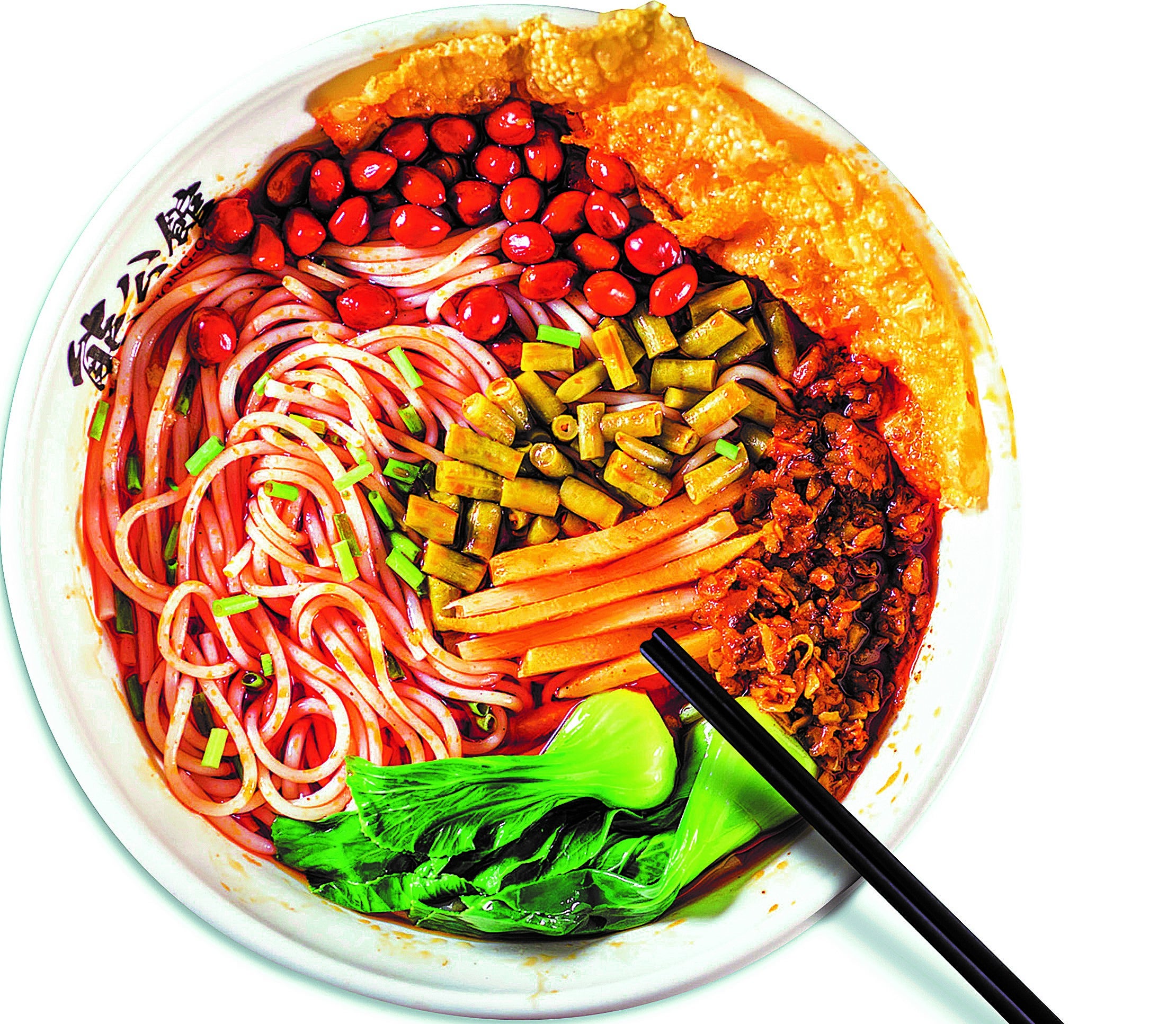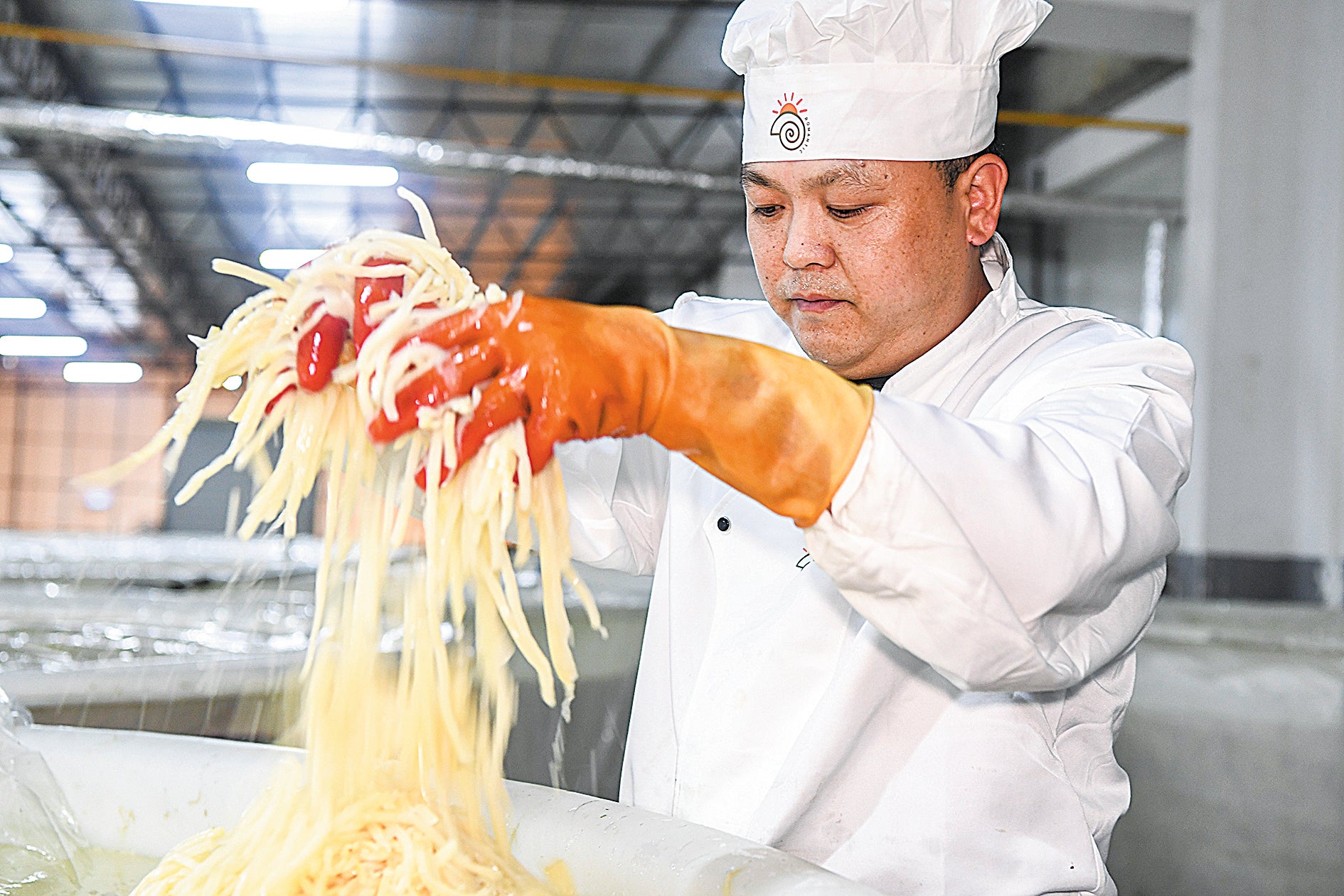Street snack rides wave of popularity
THE ARTICLES ON THESE PAGES ARE PRODUCED BY CHINA DAILY, WHICH TAKES SOLE RESPONSIBILITY FOR THE CONTENTS

Luosifen, which translates as river snail rice noodles, has risen from its humble roots as a street snack in Southwest China to take the nation’s food scene and beyond by storm, with spikes in domestic as well as overseas sales.
Amid the pandemic, the precooked, packaged version of the product is selling in record volumes, industry figures say.
Luosifen, which can be traced to Liuzhou, a city in the Guangxi Zhuang autonomous region, features rice noodles soaked in a spicy broth flavoured with river snails and topped with pickled bamboo shoots, which give it a distinctive, tangy aroma.
By the end of last year sales revenue of packaged luosifen had reached 15.2 billion yuan (£1.82 billion), 38.2 per cent more than in 2020, with the production and sales of many companies in the sector doubling, said Jia Jiangong, deputy director of Liuzhou’s commerce bureau.
Major producers pointed to the widespread development of the “homebound economy” during the pandemic, by drawing on online sales and logistics channels. This helped to fuel rises in domestic and overseas orders for precooked, packaged versions of the dish. Chen Sheng, chairman of Guangxi Shanyuan Food, said, “In April last year, we sold 150,000 to 200,000 packs a day, and now it is stable at about 350,000 packs.”

At least 56 companies in Liuzhou have been certified to use geographical indication labels as part of the increasing importance placed on protecting and promoting the luosifen economy, which has created more than 300,000 jobs, industry reports say. Geographical indication labels indicate that a product has a specific geographical origin and possesses qualities or a reputation due to that origin. Liuzhou exported 806 metric tonnes of luosifen packaged noodles from January to April 2022, double that of the same period last year, Liuzhou customs authorities said.
The value of exports of the product were a record 52.56 million yuan (£6.3 million), about 80 per cent more than in the previous year, customs said. In addition to traditional export markets such as the United States, Australia and some European countries, the ready-to-serve food was also shipped to Singapore and New Zealand. Many local farmers have also lifted themselves out of poverty through producing the rice noodles and other ingredients used in the product.
At the Lyubao vegetable farming cooperative in Dongquan township in the county of Liucheng, visitors are treated to the tangy aromas of bamboo shoots and other pickled ingredients wafting from large jars that are tended by bustling workers. The community sells about 42,000 lb of cowpeas and bamboo shoots a day, bringing sales of more than 90,000 yuan (£11,000), which adds to the incomes of more than 30 villagers and has lifted at least 23 people out of poverty, said Su Baoguang, the co-operative’s chairman. The noodle dish continues to be major calling card for Liuzhou, coming a long way from its street snack origins in the 1970s.
In a nod to the importance of luosifen to Liuzhou extending beyond its economy to cover the social and cultural spheres, the dish has also been included on the latest national intangible cultural heritage list, further increasing its popularity at home and abroad. Ken Fletcher, a Briton who works at the Liuzhou Foreign Affairs Office, said: “When I found out about this dish, I was surprised. All foreigners seem to like it. It’s very popular. I also have friends from other parts of Guangxi, not just Liuzhou. Some are living in America or Australia and I believe they will really be happy if they can buy packaged luosifen to make.”
Li Bin contributed to this story.
Previously published on Chinadaily.com.cn
